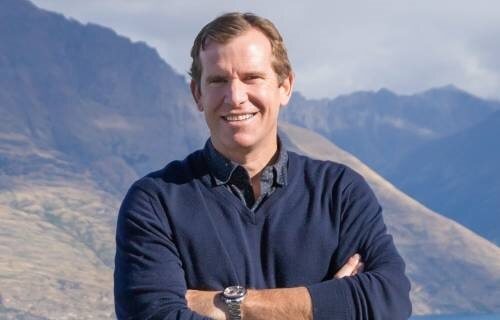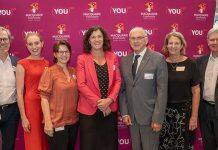Some people are born relentlessly positive. At first, Jamie Fitzgerald seems like one of those people, but after a while you get the sense there’s more to his enthusiasm than just blind positivity, but a bit of strategy too.


Jamie’s list of achievements is long. He has walked unaided to the South Pole, rowed 5,000km across the Atlantic Ocean – breaking a world record in the process – and co-hosted adventure shows First Crossings and Intrepid New Zealand. He has also enjoyed a successful professional career in New Zealand, Australia and Asia, and with his management consultancy business Inspiring Performance, where one of their ongoing projects is providing strategy services to NZTE’s stable of export businesses.
He says his success comes down in part to taking opportunities as they come along, and making the most of them with a bit of planning.
“I’m ambitious and I like to take on lots of fun projects, but I’m deliberate with what I choose. There’s always an element of goal-setting and strategy to what I do. I think about what I want to achieve or the outcome I want to see, and then create a pathway on how I will get there.”
This approach has guided Jamie’s choices since he was a teenager, and it was for his achievements in sport and business that he was recognised as one of the University of Waikato’s Distinguished Alumni in 2014, less than 10 years after graduating with a Bachelor of Communication Studies in 2007.
Oddly, Jamie says he wasn’t that adventurous as a child. “I grew up on a sheep farm in Gisborne. As a kid, we never went camping or anything like that – I had no idea about the outdoors. It wasn’t until I started rowing as a student at Tauranga Boys’ College that I got the buzz. Rowing taught me about discipline and how to set your mind to achieve something with your teammates – and I fell in love with that.”
Jamie went on to row for New Zealand first at a junior level, then U23 and the elite men’s four while he was studying at Waikato, and captained the men’s rowing team in the University’s Great Race against Cambridge and Oxford universities. A year out from graduating he was asked to join Kevin Biggar in the Transatlantic rowing race – with three weeks to prepare.
“It was pretty much ‘Hey Jamie, do you want to row across the Atlantic?’, and I thought for a minute, and just said yes. What I learned on that race was the importance of thinking clearly while you ‘just keep going.’ Some days we were rowing against a storm and made no ground, but we never went backwards, and ultimately that’s what won us the race.”
Jamie is a fan of applying life lessons and proven theory to what you do in business and life, an approach he also honed during his studies at Waikato. “I really valued my time studying. I gained an appreciation of what learning meant for me, and I had great relationships with my lecturers.
“The best piece of advice I was given, from former management dean Dr Mike Pratt, was ‘there’s nothing so practical as proven theory,’ and I’ve really taken that with me ever since.”
Lessons from lockdown
As a strategy and leadership consultant whose job is to inspire people in-person, Jamie has, like so many others, had to deliver his business differently during Covid-19.
“There have been some positives to doing business online and on video,” he says. “For one, zoom meetings have become much more normalised and it’s been nice to get an insight into people’s homes. You’re seeing the human side of people more, and that can sometimes help with breaking down barriers when creating purpose and strategy.
“It’s great to be doing your work from home, but I do love getting people together in a room to co-create the path for them to be the best they can be – I’m looking forward to being able to do that more.”
He says a common theme he’s been asked to speak about recently in his business strategy sessions is resilience and change management.
“Resilience and change have always been popular topics, but in our current environment I’ve been conscious of acknowledging that it’s OK to feel hard done by, or to feel that change is being done ‘to you’ rather than ‘by you.’ What becomes important here is to have the tools and tricks to help us be deliberate with how we respond.
“Clarity and alignment of purpose when you’re setting goals has never been more important. When businesses and individuals sustainably outperform their peers, it’s because they know what they stand for, where they’re going, how they’ll get there, and how they’ll maintain momentum.”








































